A inizio febbraio vi avevamo presentato un pezzo sulla pubblicazione in Russia della continuazione del ciclo di Deathworld di Harry Harrison, introducendo al pubblico italiano nell’occasione uno scrittore mai tradotto nel nostro paese, Mikhail Akhmanov. Abbiamo mantenuto aperto un canale di comunicazione con lui e questa intervista crediamo possa dire cose molto interessanti sia sulla sua carriera che sul mercato russo. Buona lettura!
IFET: Dal tuo sito, sappiamo che sei stato piuttosto occupato come scrittore con 120 lavori pubblicati. Potresti presentarti al pubblico italiano?
MA: Anche se ho 67 anni, sono uno scrittore giovane visto che mi impegno nella letteratura da solo 22 anni. Ho amato la SF sin dalla mia infanzia dato che questo genere non mette mai limiti all’immaginazione dell’autore. Così è stato abbastanza naturale diventare uno scrittore di SF.
Nel 1991 iniziai a tradurre dall’inglese al russo e c’erano testi molto significativi: la serie “Riverworld” di Philip Farmer; la serie dei “The Dragonriders of Pern” di Anne McCaffry; “The Lensman series” di E. E. “Doc” Smith. Poi ho scritto circa 30 storie su Richard Blade e Conan il Barbaro, ho continuato con loro più avanti. Quella diventò una buona scuola di bella narrativa per me. Nel 1995 ho cominciato a scrivere i miei romanzi.
Al momento ho scritto 14 libri scientifici divulgativi (10 sul diabete) e 42 romanzi: SF, d’avventura e storici. Questi libri differiscono molto tra loro, essendo utopistici e anti-utopistici, una lunga serie di “space opera”, religiosi e satirici, d’investigazione e sui pirati, sull’antico Egitto e così via. Due miei libri sono stati scritti in collaborazione: “Capitan French or Looking for Paradise” (con l’autore inglese Christopher Gilmore) e “Deathworld. Aliens in Mind” (con Harry Harrison). Scrivo per lettori adulti, i lettori trovano intrecci romantici e scene castigate nei miei testi. Il totale dei miei testi venduti per la SF arriva ai due milioni e più di seicentomila copie sul diabete, circa un milione e mezzo di copie arrivano dalle mie traduzioni dall’inglese.
Non oso considerarmi tra coloro che hanno definito lo standard per la SF russa, ancora di più per quella sovietica. Essendo stato un fisico, guardo al mondo con un angolo differente. Il mio interesse non è nel destino di qualche nazione ma riguarda il futuro dell’umanità. In questo ho imparato dai miei maestri della SF Stanislaw Lem, Robert Heinlein e Philip Farmer.
IFET: Fai parte dell’associazione degli scrittori di San Pietroburgo, puoi dirci qualcosa a proposito della scena SF russa?
MA: la SF russa moderna è un flusso molto vasto e descriverla in breve è rischioso. Comunque ci posso provare. Siamo entrambi familiari con un fenomeno unico, che io chiamerei “età d’oro” della SF inglese-americana.
Lo stesso avvenne in Russia nel 1990-2012; una crescita improvvisa di uscite (più di un migliaio all’anno), centinaia di nuovi autori vicini alla pubblicazione con 20-30 autori di spicco. Vorrei segnalare qualche nome: Oldy, i coniugi Dyachenko (ucraini ma scrivono in russo), Lasarchouk, Loukyanenko, Divov, Gromov, Rybakov, Loukin, Frai, Ouspensky, Panov. Credo che i romanzi di questi scrittori riguardino la SF mondiale non solo quella russa e presto saranno conosciuti anche in Italia. Le basi creative di questi scrittori sono di diversi tipi: il fantasy, lo spazio, il sociale, i romanzi storici, gli studi sulla psicologia umana in situazioni insolite e così via.
La SF in Russia è diventata un genere molto popolare e di considerevole profitto per gli editori. Nessun dubbio che sia dovuto ai cambiamenti politici nello stato e per la possibilità di scrivere di quello che era proibito dal regime sovietico. Per buono che sia questo fenomeno, ha un lato negativo: sono arrivati una pletora di autori per i lettori di più basso livello. E’ uno strato numeroso e gli editori sul piano commerciale vanno loro incontro. Il livello di intelligenza di questi lettori si è cospicuamente abbassato, in particolare per la correlazione dei milioni di persone creative e progressiste che ha lasciato la Russia. Non posso chiamare questi autori “scrittori” dal momento che scrivono in un russo molto scarso. I loro argomenti di base sono: il Grande Impero Russo domina la Terra e l’intera galassia o un supereroe russo appare nel passato e domina l’Europa, l’Asia e l’America. La situazione non è certamente nuova, durante l’età d’oro della SF anglo-americana ci sono stati circa un paio di dozzine di maestri, un centinaio di buoni autori e molte centinaia di epigoni privi di talento. Credo che il tempo metta tutto al suo posto, i libri di valore dureranno e la spazzatura finirà nell’oblio.
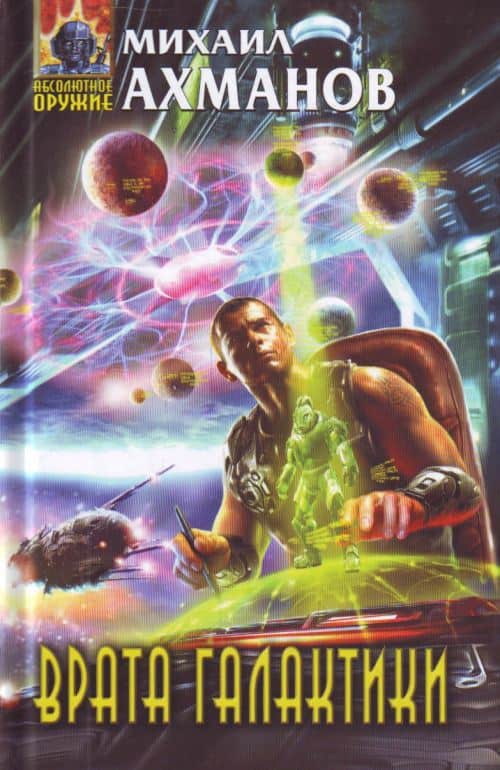
IFET: Hai creato una serie di 20 libri su un personaggio che si chiama “Richard Blade”, potresti raccontarci qualcosa in merito?
MA: Il personaggio “Richard Blade” è un’invenzione dell’editore e autore canadese Lyle Kenyon Engel (1915-1986), che ha scritto i primi otto romanzi sotto lo pseudonimo Jeffrey Lord. Poi Ronald Green ha usato questo pseudonimo, il totale negli USA arriva a 37 romanzi. Si tratta di heroic fiction, non proprio sword-and-sorcery ma molto simile – c’è un debito cospicuo verso Conan il Barbaro (Robert Howard) e James Bond (Ian Fleming). Richard Blade proprio come James Bond è un superuomo e un agente dell’MI-6, arriva in vari mondi fantastici e fa l’eroe: un sacco di sangue, combattimenti, inseguimenti ed erotismo. Non so se il personaggio sia conosciuto in Italia, anche se la serie è stata continuata in Francia dove hanno pubblicato qualche dozzina di libri oltre ai romanzi americani.
Nel 1992 visitando NY comprai i primi quattro romanzi in paperback di Richard Blade, li tradussi in russo con i miei colleghi e li offrii agli editori. I romanzi piacquero ai lettori, abbastanza da dire che il primo di essi “The Bronze Axe” negli anni ’90 fu stampato da cinque editori russi, per un totale di 500.000 copie. Il tema del romanzo era primitivo anche se attrasse il pubblico per il contenuto non familiare, tra il 1992 e il 1995 libri del genere erano assenti dal mercato russo. Avevo preso solo quattro romanzi negli USA e il mio editore mi disse: bene, potresti scrivere qualcosa del genere per conto tuo? E così feci. Comunque, Jules Verne, arrivando a Parigi nel 1848, per più di dieci anni ebbe un lavoro come ghost writer. Perché doveva essere meglio per me?
Qualche anno dopo un altro editore ottenne tutti i 37 romanzi della serie Richard Blade dall’America, alcuni di questi vennero tradotti in russo ma allora il favore dei lettori era calato. La serie in totale non è stata pubblicata in Russia ad oggi.
FET: Sei uno scienziato, come ti poni verso universi fantasy come il “Conan” di R.E. Howard?
MA: Anche gli scienziati possono essere romantici. Non sono esente da questo peccato, l’universo di Howard mi è molto vicino e mi sono divertito molto scrivendo alcuni romanzi su Conan il Barbaro nel 1995-96. Già allora ero al corrente che Robert Howard non era simile a Lyle Engel, così la possibilità di portare avanti la serie iniziata da Howard era un onore per me, così come lo è per gli autori che scrivono di Conan in America, Russia, Repubblica Ceca e altri paesi. Diventò una scuola di buona letteratura per me, come detto prima.
Conan diventò uno degli eroi più popolari in Russia, meno di 25 anni fa non sapevamo nulla di lui, difficile da credere! Ma ora! Circa 5 o 6 anni fa ebbi alcune proposte dagli editori delle serie di Conan per scrivere inrusso l’introduzione al 150esimo volume della saga di Conan il Barbaro.
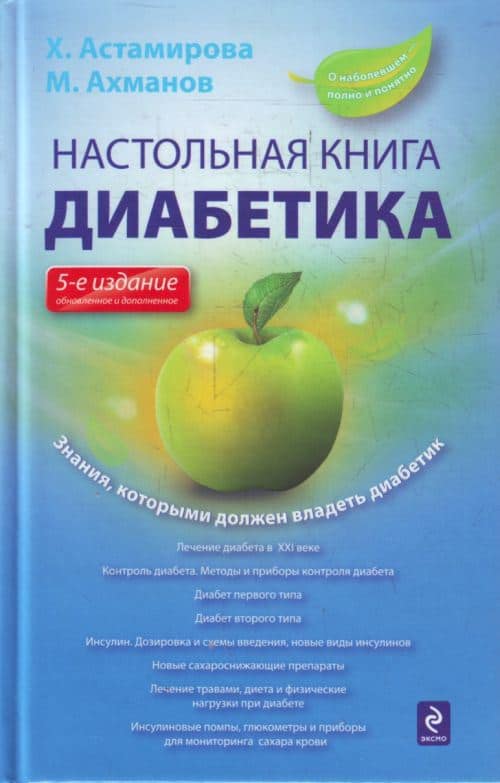
IFET: Hai scritto quattro libri divulgativi sul diabete con Khavra Astamirova, è piuttosto insolito per uno scrittore di genere. Puoi dirci qualcosa al proposito?
MA: Uno scrittore deve essere conscio della sua importante missione sociale. E’ inevitabile – noi trattiamo in Parole e le nostre Parole arrivano a centinaia di migliaia e a milioni dei nostri lettori. I grandi autori creano grandi opere per inspirare sentimenti profondi, per divertire la gente nei secoli. Così a noi, che non siamo così autorevoli, dovrebbe essere chiaro che il nostro dono letterario non ci è stato dato solo per il divertimento del pubblico ma dobbiamo produrre qualcosa di utile, di salutare.
Sono malato di diabete pancreatico da 27 anni, così troppi dei miei amici. Circa 5-6 milioni ne soffrono in Russia, altri 2 milioni in Italia, trecento milioni nel mondo. Metà di noi sarebbe morta se Banting e Best nel 1921 non avessero inventato la sintesi dell’insulina. Le particolari proprietà del diabete implicano che una persona che ne soffre deve essere estesamente informata sulle medicine, le diete, i dispositivi e le condizioni critiche.
Medici e paramedici non hanno la possibilità di istruire tutti i pazienti, così c’è un grande bisogno di manuali utili e affidabili. Nel 1998 c’era scarsità di libri utili sul diabete in Russia e non tutte le cose erano dette chiaramente in questi testi. I medici la mettevano meglio per non spaventare i pazienti. Ora abbiamo libri informativi affidabili, circa 50 autori scrivono costantemente e onestamente alle persone con il diabete. I miei libri in cooperazione con la dottoressa Khavra Astamirova in totale hanno raggiunto un milione e seicentomila copie. La scienza medica non si ferma, per questo ogni 4-5 anni noi mettiamo nuove informazioni nei nostri libri; ora non ci sono solo libri ma piuttosto un progetto di istruzione. Abbiamo un enorme numero di mail dalla Russia, dalla Germania, dall’America, da Israele, dall’Australia e dalla Francia, sempre fornendo un feedback con consulti, libri e medicine. Sento di star conducendo la mia missione con successo.
Lascia che ti ricordi i migliori scrittori tra i diabetici, come H.G.Wells e Jules Verne, che condussero la stessa missione, avendo fondato la SF. H.G.Wells fu anche tra i fondatori della British Diabetic Association.
This is the original version of this interview, courtesy of Mr. Akhmanov
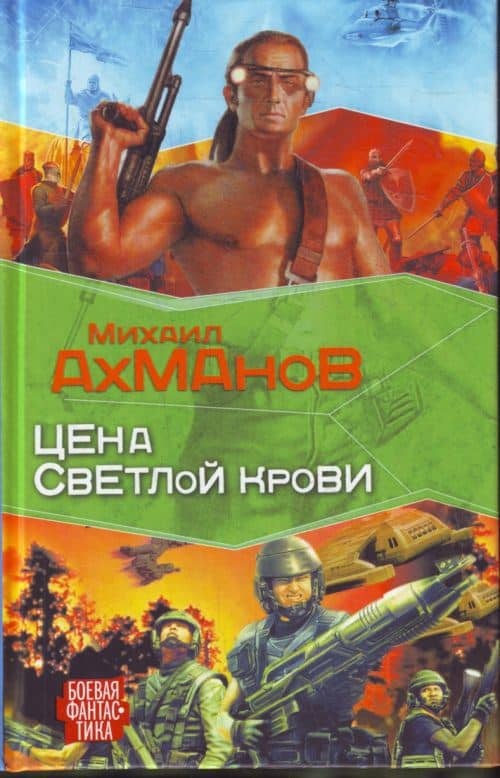
IFET: From your site, we learn that you’re quite busy as a writer with 120 published works. Can you present yourself to the italian audience?
MA: Though I’m 67, a young writer I am, being engaged in literature for only 22 years. Loved SF since my childhood, so as this gender never put limits on an author’s imagination. That is naturally enough for my coming to be a SF writer. In 1991 I started translating from English into Russian, and that were very significant texts: Philip Farmer, “Riverworld” series; Anne McCaffry, “The Dragonriders of Pern” series; E.E.”Doc” Smith, “The Lensman Series”. Then I’d wrote about thirty stories of Richard Blade and Conan the Barbarian, I proceed with them somewhat later here. That’d become a good ecole de belles-lettres for me. In 1995 I started writing my own novels. At the moment I’ve written 14 infoscience books (10 – on diabetes) and 42 novels: SF, adventures and history. These books differ a lot, being Utopian and anti-Utopian, a large series on “space opera”, religious and satyric, detectives and pirates saga, on ancient Egypt and so on. Two my books are written in cooperation: “Capitan French or Looking for Paradise” (with british author Christopher Gilmore) and “Deathworld. Aliens in Mind” (with Harry Harrison). I’m writing for the adult readers, so one usually comes on romantic lines and candid scenes in my textes. The total issue of my SF rates to two millions and more six hundred thousand copies on diabetes, some million and a half copies are my translations from English. I dare not to consider myself among those who define traditions of the Russian SF, even more the Soviet SF. Once a physicist, I’m looking the world at some different angle, my interest lies not with the destiny of certain countries and nations but it concerns the future of the Earth mankind. In this I instructed myself due to my SF masters Stanislaw Lem, Robert Heinlein and Philip Farmer.
IFET: You’re associated with the St.Petersburg Union of Writers, can you tell anything about the russian SF scene?
MA: Present-day russian SF is a very vast stream with me to describe it in short here at my own risk. But nevertheless I do try. We both are of intimate acquaintance with the unique phenomenon, which I would name “golden age” of the english-american SF. The same happend in Russia in 1990-2012: an abrupt groth of book issue (more than a thousand per year), a forthcoming of hundreds of new writers with 20-30 original large-scale authors. I would offer some names: Oldy, marrieds Dyachenko (Ukrane residents, but write in Russian), Lasarchouk, Loukyanenko, Divov, Gromov, Rybakov, Loukin, Frai, Ouspensky, Panov. I believe the novels of these writers pertain the world’s SF, not only russian and soon those will be known in Italy also. The creative topics of these writers are of diverse kind: fantasy, space, social, historic fiction, studying of human psychology in uncommon situations and so on.
SF in Russia has come to be most popular gender and of considerable profit in publishing. No doubt it is due to political changings in the state and because of possibility to write on what was prohibited by Soviet regime. And good it is though, as ever comes, this phenomenon has a negative side: there came into being a pleiade of authors for a low-grade reading circles. The stratum is numerous and on commercial grounds publishing is to meet thier demands. Reading circles’ intelligence is conspicuous to slope down, that is in particular correlates with the millions of creative and pushing people had left Russia. I can’t name the authors of mentioned stream “writer” for many of them are of poor Russian language. The typical thier topics: The Great Russian Empire put in order the Earth and the whole Galaxy or a russian Superman appears in the Past and also put in order Europe, Asia and America. The situation is no way new because the “golden age” of the english-american SF also had some two dozens of prominent masters, a hundred of good authors and many a hundred of epigones deprived of a talent. I belive time to put everything on its place, worthy books to endure, trash’ll come to oblivion.
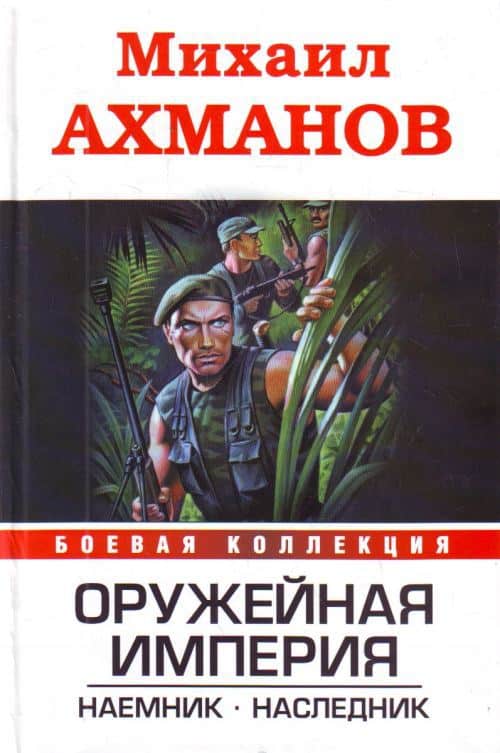
IFET: You create a 20-books series about a character named “Richard Blade”, would you like to tell us something about it?
MA: The character “Richard Blade” is an invention of canadian author and publisher Lyle Kenyon Engel (1915-1986), who wrote first eight novels under the name Jeffrey Lord. Next Ronald Green used this alias, the total issue was 37 novels in US. This is typical heroic fiction, not in the breathe of sword-and-sorcery but very like of – there is a conspicuous tracing of Conan the Barbarian (Robert Howard) and James Bond (Jan Fleming). Richard Blade just like James Bond is a superman and MI-6 agent, he comes upon various fantastic worlds and plays a hero: much of blood, fighting, chasing and erotic. I am not aware of whether this character is known in Italy, though Richard Blade series were carried on in France, where they had published some dozens of books beside the american novels.
1992 visiting NY I bought first four paperback novels on Richard Blade, translated them into Russian with my colleagues and offered to publishers. The novels cought the fancy of readers, enough to say that first of them “The Bronze Axe” in 1990s was issued by five russian publishers, total score of 500 000 copies. The novels’ subject matter was of primitive one, though attracting interest of reading public by unfamiliar content, – in 1992-1995 such books were absent in russian bookmarket. I got only four novels by myself in US and my publisher said to me: well, could you not write something of the kind by yourself? And so did I. Any way, Jules Verne, having come to Paris in 1848, for more than ten years had a job of a ghost writer. Why it should be better by me?
Some years later my another publisher had obtained all 37 novels of Richard Blade series from America, some of them were translated into Russian, but at the time readers’ favor of this character had sloped down. The series in total had not been published in Russia by far.
IFET: You’re a scientist, how do you approach fantasy-related universe like R.E. Howard’s “Conan”?
MA: The scientists are inclined to be romantic as well. I’m rather not without this peccancy. Howard’s Universe happend to link me close and I had much fun writing some novels on Conan the Barbarian in 1995-96. And then I was clearly aware that Robert Howard is no way Lyle Engel, so chances to carry on the series initiated by Howard were a honour to me, as it is for the authors now writing on Conan in America, Russia, the Czech Republic and other countries. This became a good ecole de belles-lettres for me, as I’d mentioned previously.
Conan chanced to become one of most popular heroes in Russia, in before going 25 years we here knew nothing about him, that is hard to belive! But now!… About 5 or 6 years ago I had some proposals from publishers of Conan series to write in russian a forword to 150th volume of the Conan the Barbarian Saga.
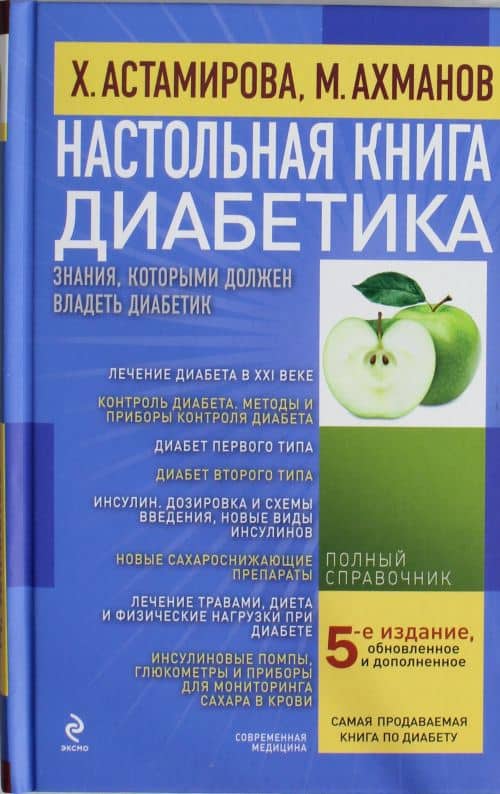
IFET: You wrote four divulgative books about diabetes with Khavra Astamirova, that’s quite unusual for a fiction writer. Can you tell us anything about that?
MA: A writer is to be aware of his very important social mission. That’s inevitable – we deal with the Words and our Words are to come to hundreds of thousand and hundreds of million of our readers. The great authors create great chef-d’oeuvres to inspire profound feelings, to amuse people in centures. So to us, may not that prominent writers, should be clear that our literary gift given not only to public leisure, but we are to produce something actually useful, health-giving.
I’m ill with pancreatic (insular) diabetes for 27 years, so too many of my friends. About 5-6 millions suffer it in Russia, another 2 millions in Italy, three hundred millions of the world. A half of us would be dead up to now if not Banting and Best in 1921 had invented processing of insulin. Peculiar feature of diabetes implies that a person who suffers it have to be widely informed in medicines, dietes, devices and critical conditions. Medics and curators have no opportunity to instruct all the patients, so useful and reliable manuals are of great need. Up to 1998 there was a scarce of useful books on diabetes in Russia and it was not all things open and clear stated in them. Medics put it better not to frighten patients. Now we have reliable informative books, about 50 authors write constantly and honestly to the persons with diabetes. Total issue is about a million and 600 000 copies of mine in cooperation with doctor Khavra Astamirova. The medical science does not stand by, that’s why every 4-5 years we supply our books with new information; now this is not just books rather a substantial instructive project. We have enormous mail from Russia, Germany, America, Israel, Australia and France, always feeding back with consultations, books and medicines. I feel myself performing my mission with a success.
Let me remind you best writers among diabetics, as H.G.Wells and Jules Verne, who performed their missions as well, having founded SF. Also H.G.Wells was the founder of British Diabetic Association.
